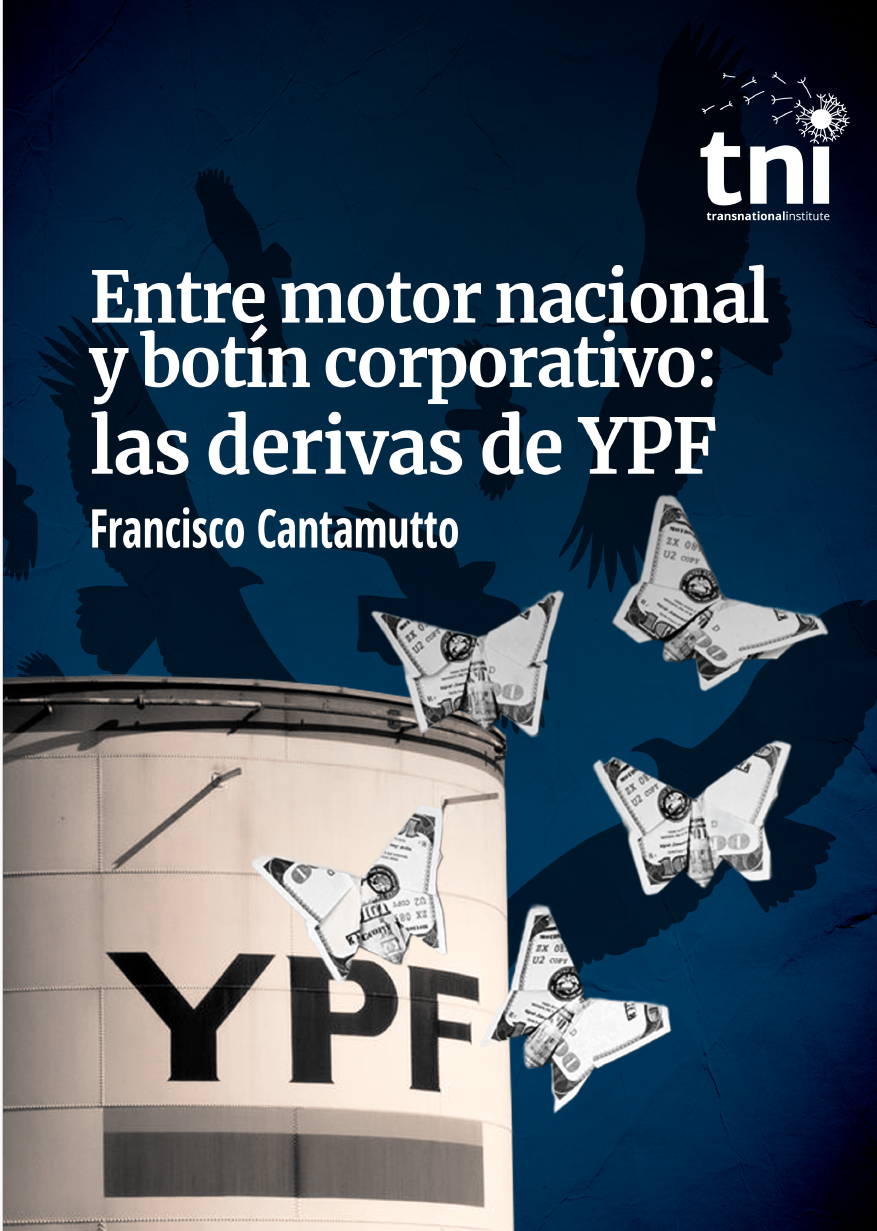Reports
For over 20 years, Argentina had the world’s highest number of investor claims before international arbitration tribunals. It also has the highest number of bilateral investment treaties (BITs) in force in Latin America and the Caribbean (LAC). Recently, the government of the self-proclaimed anarcho-capitalist Javier Milei expanded investor rights through the Incentive Regime for Large Investments (RIGI, the Spanish acronym), which grants extraordinary rights to all investors, both foreign and domestic, including the ability to sue the state in international arbitration. The consequences could be a new wave of arbitration claims and increased external debt.
Few symbols encapsulate Argentina’s national development narrative and its ups and downs like Yacimientos Petrolíferos Fiscales (YPF) (fiscal oilfields). YPF is at the heart of Argentina’s political imagination: it is not just another company, it is virtually an economic sector in itself, and thus plays a key role in the future of the national economy. It is at the centre of controversies about the country’s direction. The YPF case is relevant first, because it highlights the link between these operations and broader access to capital markets in the quest to generate investment income. And second, because it exposes the inconsistencies of the international investment protection system, which enables large corporations to engage in predatory practices, creating severe macroeconomic problems for Argentina. This report presents the key elements for understanding the future of YPF, which is now hamstrung by overlapping institutional constraints that prevent it from becoming a vehicle for more equitable economic development. It reviews the company’s recent history in order to understand its link to broader national reform processes.
While the EU is committed to net-zero emissions, the prevailing approach hinges on maintaining capitalist expansion, raising questions about the viability of a true green transition. The endeavor faces complexities, notably in the context of global competition and the imperative to secure essential raw materials, emphasizing extractive production models.
Honduras has received a total of 19 international arbitration claims from foreign and domestic investors. Between 2023 and 2024 alone it has been the recipient of 14 claims (as of August 2024) at the World Bank’s International Centre for Settlement of Investment Disputes (ICSID). During this period, the lawsuits have principally aimed at confronting some of the measures taken by the government of Xiomara Castro. This reports aims to shed light on the impact of the investment protection regime of Honduras and its consequences for the country and its people.
In 2023, Mexico had received the most investment arbitration claims under investment protection treaties worldwide. With 55 cases in total, Mexico is now among the most sued countries by foreign investors before international arbitration tribunals and the third highest in Latin America and the Caribbean. An increasing volume of public money may end up being paid to foreign investors’ multi-million-dollar claims resulting from arbitrations. Despite this, Mexico continues to sign new investment protection treaties that include recourse to international arbitration tribunals as the main mechanism for Investor-State Dispute Settlement (ISDS). In recent years, Mexico ratified the CPTPP; renegotiated the Treaty between Mexico, the United States and Canada (NAFTA 2.0/USMCA), maintaining the ISDS system between Mexico and the US; and concluded the renegotiation ‘in principle’ of the Trade Agreement with the European Union (EU), which includes a new investment protection chapter. In 2018 it also became a full member of the World Bank’s International Centre for Settlement of Investment Disputes (ICSID) Convention.
In this report we look at Mexico’s investment protection regime and outline its main consequences for the country.
This report exposes the risks that the Investor-State Dispute Settlement mechanism (ISDS) implies for the public services system for the countries of Latin America and the Caribbean. It is proposed to provide elements for debate, while analyzing examples of States that have already modified or even terminated their investment protection treaties, such as Bolivia, Ecuador, Indonesia and South Africa.
Since the beginning of the Covid-19 pandemic, companies and law firms evaluated the option of ISDS claims in relation to the measures that States were taking to mitigate the social, economic and health effects of the crisis.
The investment arbitration regime has drawn enormous criticism in recent years. But a little-explored aspect is how this regime undermines the judiciary and the decisions made by national judges. This report takes the experience of Latin America and presents five scenarios to demonstrate that investor-State lawsuits and the arbitrators who decide on them violate the judiciary.








